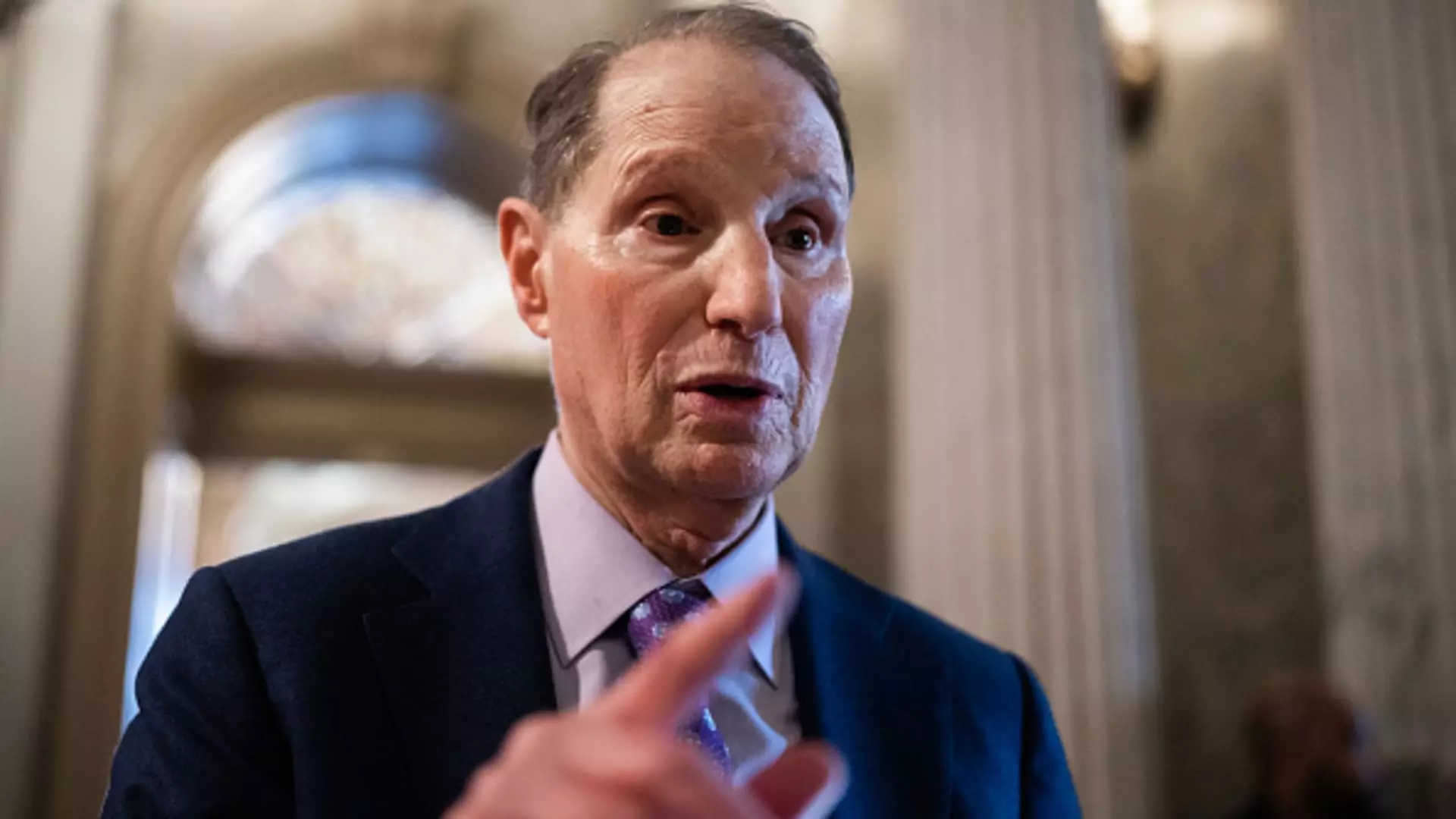The recent shutdown of Medicaid reimbursement portals across all 50 states represents a profound disruption in the U.S. healthcare system, highlighting vulnerabilities in financial assistance mechanisms at a time when they are critically needed. This abrupt halt was precipitated by a funding freeze initiated by the Trump administration, which has raised concerns among healthcare providers and lawmakers alike. The implications of this shutdown extend beyond mere inconvenience; it threatens the viability of healthcare services relied upon by millions of Americans.
On Tuesday, Senator Ron Wyden from Oregon brought attention to the crisis, stating emphatically that the reimbursement portals were non-functional, directly impacting doctors and hospitals nationwide. This disruption was not an isolated incident; it was a reflection of a broader policy environment that has been characterized by uncertainty and abrupt changes in funding priorities. The ramifications were immediately felt, with Texas Senator Chris Murphy reporting that Connecticut’s Medicaid payment system had effectively been disabled, leaving healthcare providers in a precarious position.
The closure of these reimbursement portals followed a memo issued by Matthew Vaeth, the acting director of the Office of Management and Budget (OMB), which mandated a temporary pause on various federal grants and loans. This directive called for an extensive review of all federal financial assistance programs and their compliance with the policies set forth by President Donald Trump. Such sweeping measures raise critical questions about the stability and functionality of support systems designed to protect the health of vulnerable populations. The structured review suggested by the OMB could potentially lead to long-lasting effects, leaving millions in the lurch.
During a press briefing, White House spokesperson Karoline Leavitt was met with skepticism when pressed on whether Medicaid payments would be similarly affected. Her noncommittal response to inquiries regarding the impact of the funding freeze demonstrated a troubling lack of clarity at the highest levels of government during a crisis. This kind of ambiguity only fuels frustrations for both healthcare providers and the 72 million Americans who rely on Medicaid for their healthcare needs, as highlighted by Murphy’s exasperated response on social media.
The current predicament underscores an urgent call for action. Without swift resolutions to restore funding and functionality to Medicaid reimbursement systems, the fallout could be catastrophic, exacerbating an already strained healthcare landscape. Providers are left uncertain about payment structures, which could lead to diminished services for patients who depend on Medicaid for access to critical health services.
Moreover, the inability of government agencies to provide timely and transparent information leads to further distrust among the public regarding the management of healthcare resources. The ongoing discussions about the future of Medicaid services should not only focus on administrative reviews but also on ensuring that the healthcare system remains robust, transparent, and accessible to all Americans.
As the nation grapples with the repercussions of this shutdown, it is essential for lawmakers and federal agencies to prioritize the wellbeing of the millions affected. The call for immediate restoration of services is not just a political imperative but a moral one – one that reflects the core values of care and compassion that underpin the American healthcare system.


Leave a Reply